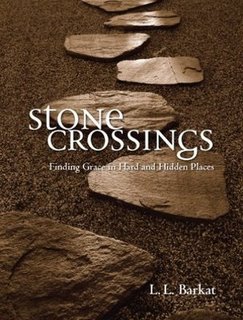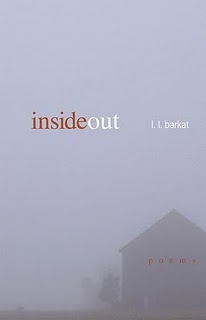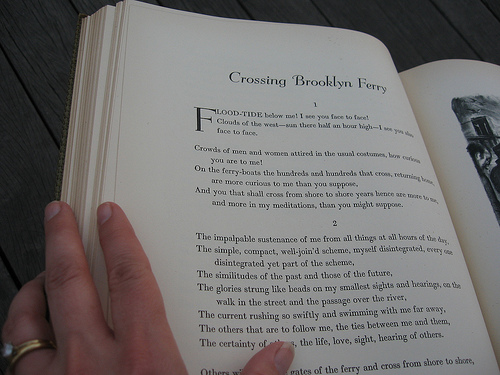In Peter Leithart’s provacative, well-written, witty, learned and altogether orthodox study of what the scholars call hermeneutics (how to read the Bible), Deep Exegesis: The Mystery of Reading Scripture (Baylor University Press), he reminds us that part of learning the “inside” story—the joke, as it were (most jokes, like, say, lawyer jokes, presume some prior knowledge to “get it”)—comes, from, well, spending the time and energy to read the text and pay close attention to it. The art of interpretation comes from experience. Ahem! Didn’t I say something like that a few posts ago about poetry? Speaking as much to myself as BookNotes readers, I hinted that we may not “get” poetry because we just haven’t worked at it very hard. We haven’t read enough, haven’t found the good ones, haven’t invested a bit to develop an eye and ear for it.
Leithart has one chapter that is curiously called “Words are Players.” He says that words are characters and have “rich, perhaps contradictory personalities and behaviors and hidden but influential pasts.” After a bit of good etymological observation from the gospel of John, he asserts that “The Bible is closer to poetry than of linguistics or scientists…how can we hear good news as news if the Bible’s words are not permitted to say anything new?”
I write this heady stuff to once again say that words matter, that even for the most spiritual among us, the most astute students of God’s Word, language matters. Poetry matters.
And, it may not be a long shot to argue that the patience and imagination and playful work it takes to learn the inner vocabulary of an art form—contemporary architecture, Medieval tapestries, iconography, be-bop jazz, and yes, poetry of all sorts—creates a character and disposition that is human and humane. I hate to sound like your mom telling you to eat your vegetables, but we all know that mom is right about that. Yup, poetry is good for you.
Is poetry good for your soul? Can it help shape us into what God might want us to be?
I heard a friend say something like that recently, saying matter-of-factly how she buys a new volume whenever she can. She herself is a serious Christian, a theologically-aware disciple, and a writer of memoir and story. She longs for playful juxtaposition of words, cleverly-crafted lines, new sounds, images, similes, metaphors. My friend is Laura Barkat and in a gleeful and certain way—as if this was very exciting news or as if she was sharing a very important secret— she insisted that poetry is good for her soul.
If you don’t know L.L.’s wonderfully written and deeply affecting memoir Stone Crossings: Finding Grace in Hard and Hidden Places (IVP; $15.00) please read my review of it from a year or so ago. I was truly blessed by spending time with her reflections, and a few chapters I have read and re-read. Not a few smart writers have given it their endorsements, and one reviewer properly linked her to Annie Dillard. It is one of my favorite books and she deserves to be known as a very profound writer.
Finding Grace in Hard and Hidden Places (IVP; $15.00) please read my review of it from a year or so ago. I was truly blessed by spending time with her reflections, and a few chapters I have read and re-read. Not a few smart writers have given it their endorsements, and one reviewer properly linked her to Annie Dillard. It is one of my favorite books and she deserves to be known as a very profound writer.
I heard her, at Jubilee 2010 in Pittsburgh last February, doing a talk/reading on her commitment to experience beauty, and it was one of the highlights of a very memorable weekend. Beauty can be healing and it may take a person who has seen the hardest of times to testify.
Ms Barkat not only searched for greater beauty in her life, she made a choice to embody a spiritual practice of attentiveness, of being present to creation–in her own backyard, a sliver of space in a pretty urban outskirt of New York city—and to make poems from her observations.
I committed to sit outdoors every day for at least the time it would take to finish a cup of tea. It was nothing fancy, mind you; each day for a year, I sat in my back yard under a pine tree. Having begun the endeavor in winter, Fall was my final season. I used to think the times of leaves drifting, air crisping, apples ripening was my favorite…Now I am undecided…
“It was nothing fancy, mind you.” I love that.
I also love her preface in which she suggests that we all might try our hand at this game of making poems.
Few of us who play with words will become the next poet laureate, but why should that stop us? If we can read poetry well, or speak poetry in our normal conversation (which many of us uncannily do), then it might not hurt to try writing poetry too. At some point I must have decided this for myself. For better or for worse, you hold that decision in your hands.
 Well, you don’t hold insideout by L.L. Barkat (IAM; $15.00) in your hands, yet, but it is my pleasure to tell you that you ought to consider holding this very book, this fruit of her year-long experience of waiting and watching and writing. The collection is divided up into four nice seasons, and often the offerings are quite short. Some are full of colorful imagery of nature—“impossible white tips evergreens blankets dead leaves” or “Furled leaves of wild garlic mustard and, soon, forsythia breakfasts!” or “Light plays upon the pine, dips her in golden oil.” Yet, these are not back-to-nature Walden tributes to the wild. Some are just her interaction with her back yard, perhaps a garden, or the neighbor’s dog, or her own sensations, as when she writes of her “eyelashes now saffron pollen freckled, undone.”
Well, you don’t hold insideout by L.L. Barkat (IAM; $15.00) in your hands, yet, but it is my pleasure to tell you that you ought to consider holding this very book, this fruit of her year-long experience of waiting and watching and writing. The collection is divided up into four nice seasons, and often the offerings are quite short. Some are full of colorful imagery of nature—“impossible white tips evergreens blankets dead leaves” or “Furled leaves of wild garlic mustard and, soon, forsythia breakfasts!” or “Light plays upon the pine, dips her in golden oil.” Yet, these are not back-to-nature Walden tributes to the wild. Some are just her interaction with her back yard, perhaps a garden, or the neighbor’s dog, or her own sensations, as when she writes of her “eyelashes now saffron pollen freckled, undone.”
In winter, she writes short lines such as, “Blueberry bushes stripped lean, amber crimson against a bronze need bed” and “Snow empties the sky to a bare whiteness, but it fills me, fills me.”
Some, though, seem to be about things other than what she saw in her year-long, tea-drinking sitting. A few are about memories, or global concerns (a powerful one about Sudan) and some are about her own inner journey. A few are quite obviously about the mystery of creativity, the arts, her own work as writer, photographer, blogger and cultural agent.
Verse
What is poetry,
she asked, fetching
it to me with full
hands. How could I
answer the woman?
I do not know what
it is any more than
she. I guess it must
be marks on tender
skin, bearers of sin,
cool cups of rain
and bottles of tears
collected on midnight
trains from the eyes
of old men, old women
and infants traveling
to God knows where,
it hangs and is lifted
from our hair
goes onward
and onward speaking
itself, tripping us
as we debark
chewing-gum mottled
metal stairs.
And, as we have seen in the other three great poets I’ve highlighted this week, human suffering and great grief finds (healing?) voice in poems. Some of these poems are about the sadness of the human condition, but (of course) not generically so. It is different than reportage, but there are stories here.
There are hints in the titles. This one, “Instructions” is for a person, whose name is given.
What to do when a best friend’s husband dies
on the eve of your little girl’s birthday:
Hang up the phone, lean into the counter
in a kind of conscious faint. Moan.
Moan, a deep cry that comes from a place
you didn’t know existed, tremble,
feel the ice sensation that begins
rising and falling within you like
Northern Lights
shimmering up and down
a midnight sky
The poem continues, with gloriously rich description as in (a poet’s) recipe, as she cooks the birthday meal, “one glass, one dish at a time.” Several beautiful stanzas would delight any literary-minded cook, with such lovely descriptions or her utensils and ingredients.
And then this interlude:
Curse the maker
of lawn mowers. Beg the man
to come back and this time decide
upon a nap instead of simple exercise
of back and forth on green, where he has
fallen. Did fall. Ask God to turn back time,
if only for this one whose heart has failed
him. Let it not be so, that he has fallen.
And back to some final instructions for the meal, more good lines, then this:
to your eight-year-old. Kiss her on the
cheek and forehead. Hold her to your
chest. Give her the black-handled scissors
so she may go out into the green.
The birthday sauce will be needing fresh basil, fresh.
And she will go out skipping,
snip it for you at the tender neck.
Put it in your hand with soft, round
fingers. Toss her head and smile.
Life, indeed, does go on, and beauty–even the beauty of thoughtful words well parsed—can help. I commend this work to you, this nice little book of experiments with words. Laura is a kind soul, a good thinker, and one who seems to have a mature awareness of the deeper currents of her own emotions. Not only does seeing (reading? hearing?) her poetic ruminations on these feelings give us joy for the sheer beauty of the poems themselves (that it, it is art) but we can (I hope I’m not being too blunt) also “get something out of it.”
Poems are not self-help books. One doesn’t slap down the payment and demand a unit of insight, a package of advice. Yet, it pays off, if we must use such a term, as immersion in another’s story, and immersion in her allusive use of imagination and the literary arts, creates in us a way of seeing. Perhaps a new way, perhaps a (re)newed way. Either way, art can transform us, usually in subtle nudges. (I don’t mean to be too blunt about this, but, you know, if the art comes on too forthrightly strong, it probably is bad art. It is propaganda. I sometimes tell young religious songwriters, especially, that if they want to preach that badly, get a pulpit or lectern, not a sound-stage. Of course art can be bold and brave, but most often is must suggest, not say.)
L.L. Barkat does this well. I think she has a gift, a gift of sight and of vocabulary, which makes her descriptions so wonderful and enjoyable. She has obviously worked at her craft, but she does have this glorious bundle of words she carries, this tool-kit, this laundry list. Good writers must, I suppose. But also, beside her natural gift and her hard work, she did this thing. She put herself in her backyard and looked and listened, pen in hand.
Introducing the Spring portion of the books she says,
In the semi-urban environment where I make my home, it is hard to embrace solitude for even fifteen minutes. The culture of the place agitates and urges. No time for rain (it will muss up your hair for the next appointment), no time to watch Spring’s first blossoms. Seasons turn and we miss the nuances. But I had committed to sitting still in my yard and watching. So I saw things I never saw before…
As we’ve said, she has some great nature stuff going on. She uses the language of color, of fruit, of fragrance, and it is really enjoyable, better with second and third readings. Bird-watchers will love some of these, as will gardeners. And, she has some relationship stuff, romance stuff, a few that are a little sexy, even. What is this about?
Bottled
I am fizzle
fazzle pizazz
snap crackle,
slide your hand
past my red belt
take me by the
ribbed neck
set teeth on edge
flick fluted tin
and, pop!
Kudos to IAM (International Arts Movement) for producing this lovely paperback poetry book, for honoring L.L. as a writer in their movement. (She writes for their fantastic journal The Curator, too.) She also works managing the remarkable, multi-voiced HighCallingBlogs (of the Laity Lodge folks) and has for years had her own classy website, Seedlings in Stone.

Thanks for allowing us to tell you about some of the poetry we stock, some of the writers we like (remember that first part of the first post where we named Luci Shaw, Wendell Berry, Mary Oliver and others?) And thank you even more for allowing us to share some of the lines of four new books, each of them somewhat “under the radar.” And each by friends of H&M.
These four are pretty much indie artists and they deserve our support. Could you perhaps share these reviews with somebody you know who might be interested in thoughtful, faith-shaped poetry? Could you call together a reading group to read these poems out loud? Might you considering ordering one or two? It is National Poetry Month, after all. Cool. huh?
Kent Ira Groff is a spiritual director whose latest poems are prayers. You can use it devotionally in conversation with Bible passages. Lew Klatt is a Calvin College English prof and award-winning, avant-garde poet. This is serious stuff. Michele Barnes McClendon is a brilliant black woman who shares her life with great poignancy and grace. I can’t express how tender some of these are, and how I enjoyed them. L.L Barkat is a professional writer, artist, editor, whose beautiful writing illustrates her practice of seeing well and writing with lovely, striking words. It may be that for many, her insideout may be the one to start with. We thank each of these pals, encourage them to keep at it, and thank you, our bookish friends for caring about good lines. Happy National Poetry Month!
10% off
any book mentioned
ORDER HERE
(takes you to the secure order form at the Hearts & Minds website)
Hearts & Minds 234 East Main Street Dallastown, PA 17313 717.246.3333

Great highlight of LL here, Byron. She’s got a gift.